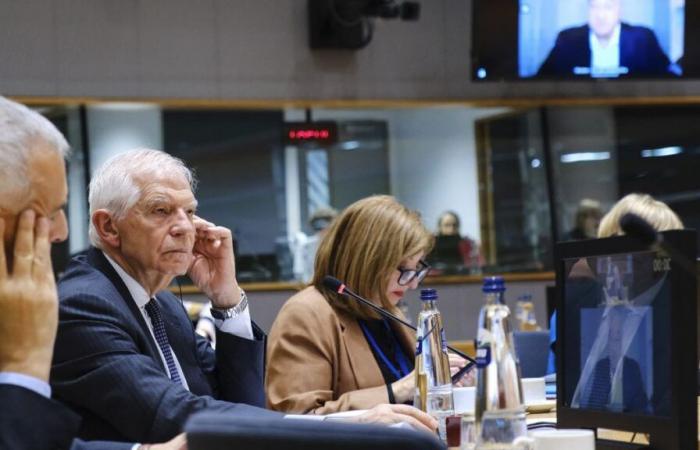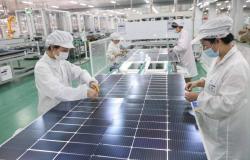The meeting of EU foreign ministers comes a day after Russia launched a new massive drone and missile attack targeting Ukraine.
ADVERTISEMENT
The foreign ministers of the European Union met this Monday in Brussels, to discuss in particular the evolution of the conflict in Ukraine, and the green light from American President Joe Biden allowing Kyiv to use long-range missiles. The discussions will also focus on the deployment of nearly 10,000 North Korean soldiers in the Kursk region.
The recent American presidential election, marked by the victory of Donald Trump, who pledged to review the military and financial aid provided to Ukraine, is fueling fears, and the prospect of Europe soon being isolated in its support. in Kyiv.
“We are in a completely different context, and Europeans must be ready to act without waiting for decisions from the United States,” declared Josep Borrell, the head of European diplomacy, regarding the Republican’s return to the White House.
“Russia continues to attack and we must continue to support Ukraine to defend itself.”
Borrell welcomed President Biden’s decision to overturn his long-standing veto and now allow Kyiv to use US-supplied ATACMS missiles to strike Russian soil. The High Representative for Foreign Affairs of the EU urged to several times Member Statesin particular Germany, to lift these restrictions and give Ukraine full room for maneuver. But Mr Borrell’s attempts to develop a European position have fallen on deaf ears, leaving each country to act unilaterally.
“You know my position,” Mr. Borrell told reporters on Monday. “Ukraine should be able to use the weapons we provide not only to stop arrows, but also to strike bows. I continue to believe that this should be done.”
Annalena Baerbock, Germany’s foreign minister, who has often taken a tougher stance on Russia than Chancellor Scholz, said Mr Biden’s about-face was “important” and warned it would should not be seen as a “questioning” of Western efforts, but rather as an “intensification of what has already been done.”
“The right to self-defense means not waiting for a rocket to hit a children’s hospital, a school or an apartment building,” Baerbock said.
His French counterpart, Jean-Noël Barrot, said his country was open to the idea of allowing Ukraine to strike military targets inside Russian territory. France and the United Kingdom, which supplied kyiv with the Storm Shadow, a type of long-range missile, made their authorization conditional on US approval.
Drones made in China
Lithuanian Gabrielius Landsbergis was very critical and said that the current strategy on Ukraine had “failed”, because the weapons supplied to Ukraine so far had only succeeded in containing Russian forces rather than pushing them away.
“Peace through de-escalation is a failed strategy. We need a new strategy. We need a strategy that will come from strength,” Landsbergis said Monday morning.
“When I talk about force, I talk about weapons, I talk about a real lifting of all restrictions (on weapons) and a winning strategy.”
Hadja Lahbib (Belgium), Margus Tsahkna (Estonia), Luminiţa-Teodora Odobescu (Romania) and Caspar Veldkamp (Netherlands) all highlighted the need for the EU to remain fully engaged with Ukraine and expressed serious concerns about the role played in the war by other state actors, including Iran, Belarus, North Korea and China.
Diplomats in Brussels have received “convincing” evidence that Russia has built a factory to produce drones in China’s Xinjiang region, which would allow the Kremlin to escape sanctions imposed by the West. EU officials continue to investigate the information to determine the scale of Russia’s weapons program and the level of China’s involvement.
“China should realize that this is an issue that directly affects Europe’s security,” Veldkamp said, adding that sanctions could be considered if suspicions about China-made drones China were finally confirmed.
Beijing denied this information, claiming to “strictly” control military exports.
In addition to the war in Ukraine, Monday’s foreign ministers’ meeting will include a discussion on the proposal by Mr. Borrell to suspend political dialogue with Israel due to alleged violations of human rights and international law in Gaza, which is very unlikely to succeed due to unanimity rules.
This meeting probably represents Mr Borrell’s last intervention as head of EU diplomacy, before his replacement by Kaja Kallas at the beginning of December.






